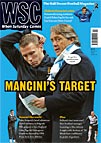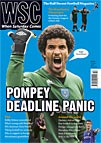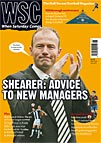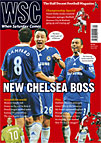 Winning the Welsh Cup was an achievement but a run in Europe was how a now-defunct team from Llandudno Junction made history. Owen Amos remembers Borough FC's outing in the 1963 Cup-Winners Cup
Winning the Welsh Cup was an achievement but a run in Europe was how a now-defunct team from Llandudno Junction made history. Owen Amos remembers Borough FC's outing in the 1963 Cup-Winners Cup
The first Welsh club to win a European tie wasn’t Cardiff, Swansea or even Wrexham. It was Borough United, in the 1963-64 European Cup-Winners Cup. The Welsh Cup winners entered the Cup-Winners Cup every year, bar the first tournament, in 1960-61, when only ten teams entered. In 1961 Swansea Town (they became City in 1970) were beaten by East Germany’s Motor Jena. The year after Bangor City were beaten by Napoli, despite winning the first leg 2-0. Then came Borough.


